DUBAI: Water scarcity and mismanagement are pressing global issues, made worse by a warming climate which is depleting the world’s freshwater sources at an alarming rate. Despite this, international cooperation on water security has been left wanting.
More than three billion people depend on water that originates outside their national boundaries, yet just 24 countries have cooperation agreements in place on their shared water resources.
Transboundary water resources make up 60 percent of the world’s fresh water. Some 153 countries contain at least one of the world’s 310 transboundary rivers and lakes, as well as 468 inventoried transboundary aquifer systems, according to the UN.
FASTFACT
• March 22 is World Water Day.
As climate change depletes these resources, water could become a major source of conflict between nations in the years to come.
“Some of the most prolonged conflicts in the Middle East include poor transboundary relationships,” Alicia Dauth, a senior consultant and member of the Institute of Environmental Management and Assessment, told Arab News.

Alicia Dauth, senior consultant at the Institute of Environmental Management and Assessment. (Supplied)
“Unfortunately this can cause armed conflict, exasperating tensions and displacement of a country’s people and water resources.”
Historically, water conflicts arise when two or more countries fail to collaborate or jointly manage a shared water source, be it on the surface, like a river, or underground, such as an aquifer.
Instead, said Dauth, they prioritize their individual social and economic interests, disregarding collective welfare, leading to long-term tensions.
“Water cooperation is an approach which the International Centre for Water Cooperation refers to as their method to address transboundary management for shared water resources. This can be done through formalized frameworks and joint institutions,” she said.
Negotiations involving Ethiopia, Sudan, and Egypt over the Grand Ethiopian Renaissance Dam (GERD) exemplify the difficulties associated with effective management of shared water resources.
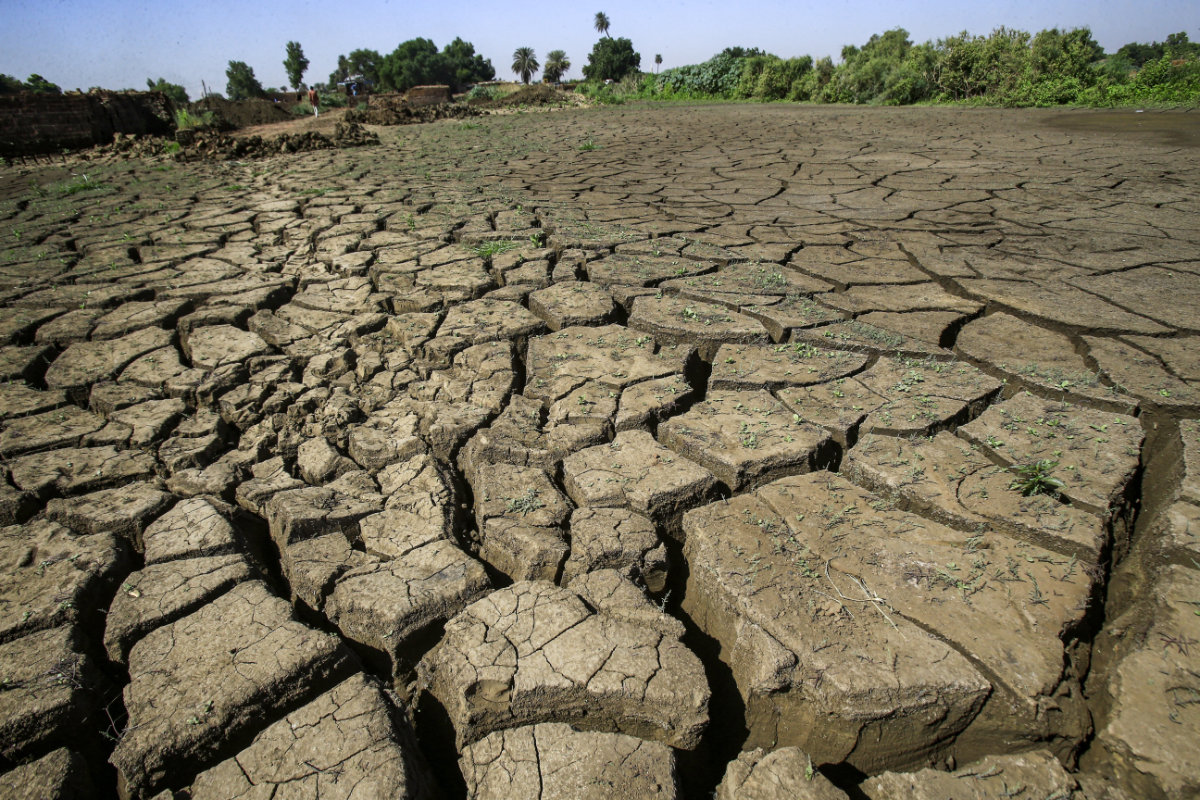
This picture taken on November 11, 2019 shows a view of an agricultural field in Jureif Gharb district of Sudan's capital Khartoum. Water scarcity is common across the Middle East and North Africa owing to high temperatures and limited rainfall. (AFP)
The large hydropower project located near the Ethiopian-Sudanese border on the Blue Nile has become a significant source of tension among regional states. Downstream nations like Egypt are particularly concerned about the impact on their water supply.
Water scarcity is a common problem across the Middle East and North Africa region, owing to high summer temperatures and low rainfall.
Jonathan Hirasawa Ashton, Middle East spokesperson for industrial supplier KROHNE Group, believes the issue calls for closer cooperation between states combined with new technology and greater public awareness
“The water crisis, exacerbated by climate change, mismanagement and geopolitical tensions, requires an urgent, multifaceted response that leverages technological innovation, international cooperation and a culture of conservation,” Ashton told Arab News.
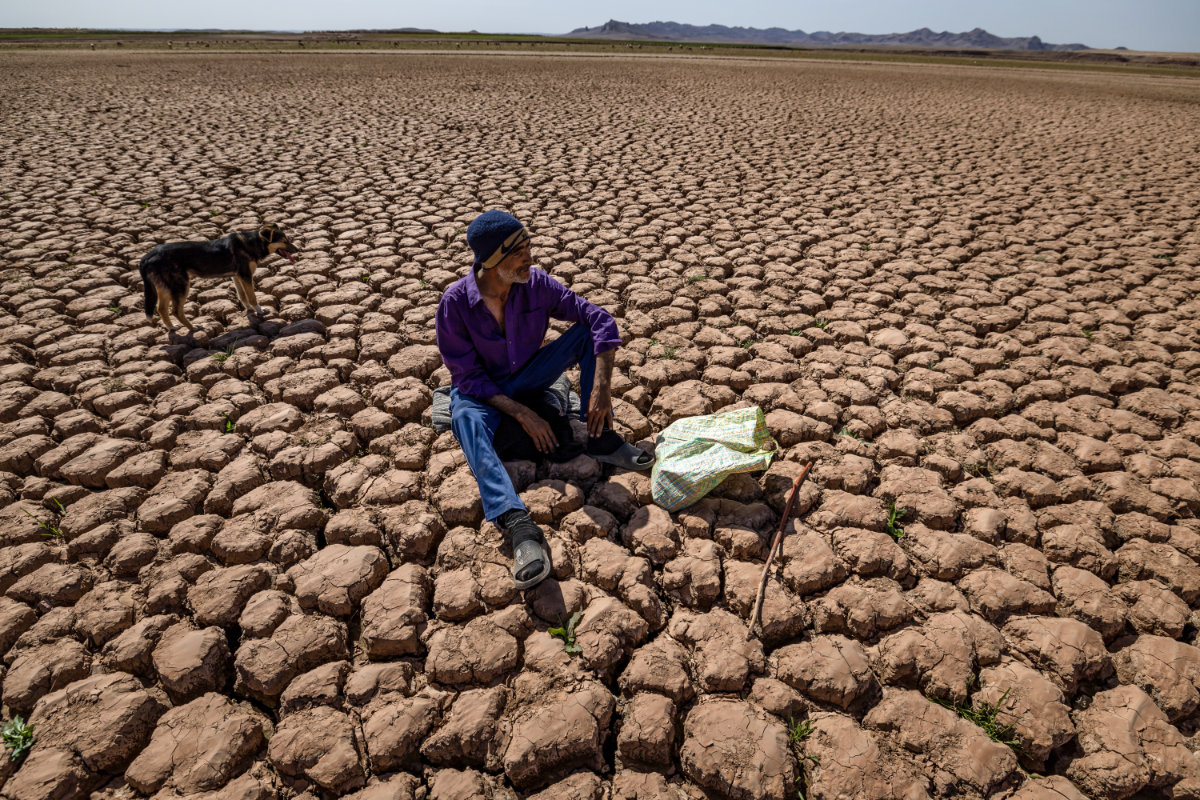
A shepherd watches over his herd of sheep sitting on cracked earth at al-Massira dam in Ouled Essi Masseoud village, some 140 kilometers south of Casablanca, on March 6, 2024. (AFP)
Failure to address the shared problem of water shortages could harm the region’s economic development, public health, and stability.
“The Middle East, rich in history but arid by nature with 11 of the 17 worst affected countries in the MENA region, faces dire consequences if its water scarcity issues remain unaddressed,” said Ashton.
According to the UN Food and Agriculture Organization, the Middle East is one of the most water-scarce regions in the world with average annual water resources per capita at 550 cubic meters.
“This is half the 1,000 cubic meters per capita threshold for water scarcity according to the UN’s Water Stress Index,” Helen Bali, head of water for the environmental consultancy WSP Middle East, told Arab News.
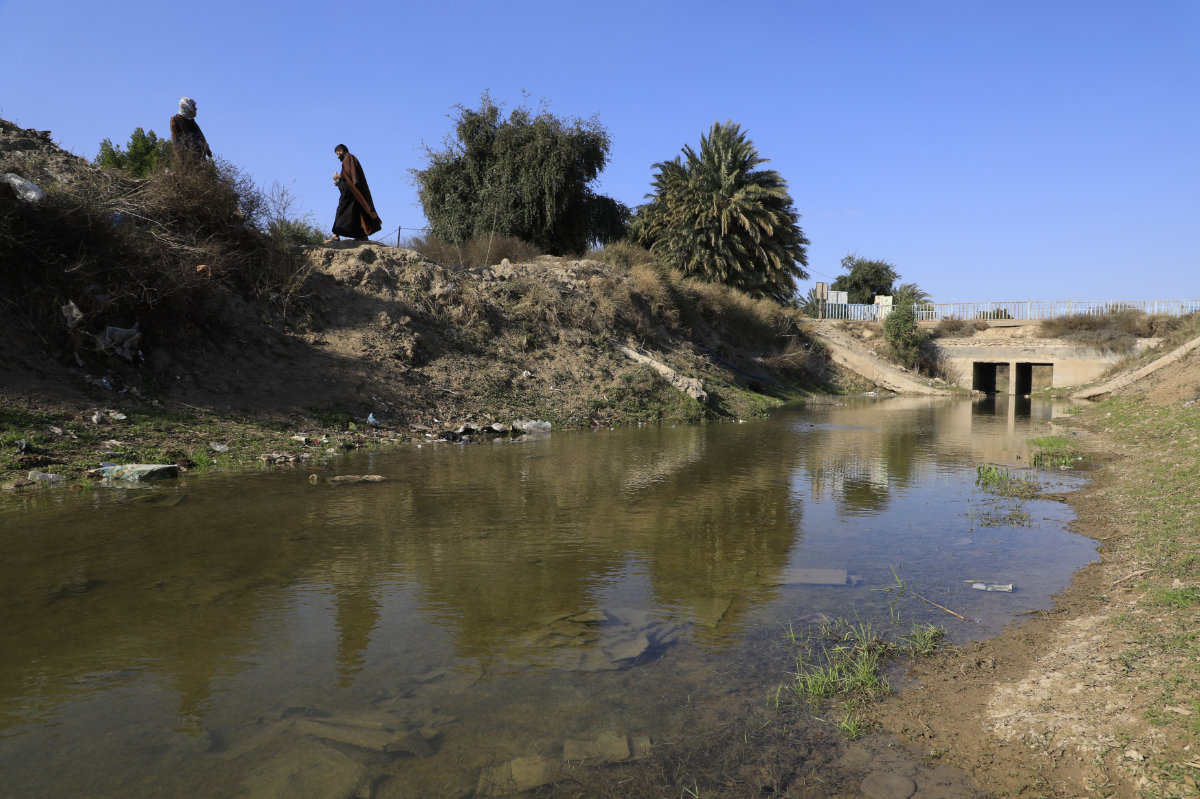
This photo taken on February 2, 2024, shows Iraqi villagers walk past the river of al-Qasr on the outskirts of the village of Kenana in the southern al-Gharraf district, which suffers from water scarcity and pollution. Locals use artesian wells in the heart of the river to pump water used for washing after filtering it. (AFP)
“Climate change is expected to exacerbate this situation, and the Middle East is anticipated to be one of the regions most affected by any increases of heat and water stress associated with climate change.”
Bali believes that promoting greater transboundary water cooperation among countries that share water resources is crucial for protection and conservation.
Fortifying water security requires a comprehensive approach which includes governance of water resources, infrastructure development for water transmission and distribution, tariff reform, and addressing non-revenue water that goes unaccounted for, she said.
“This can involve establishing joint institutions, mechanisms and agreements for water management, monitoring, and sharing, based on the principles of international law and mutual benefit,” she added.
Bali warns that a spike in temperatures will influence climate patterns and could trigger reductions in net rainfall across the region. At the same time, the region’s projected population growth will increase existing pressures.

Helen Bali, head of water for the environmental consultancy WSP MiddleEast. (Supplied)
“Under these conditions, fossil aquifers will be further depleted, meaning they are yielding less and less water in proportion to the populations they serve,” said Bali.
Measures to address this might include “the implementation of sustainable extraction practices, the promotion of water conservation, and the use of modern technologies for efficient water use and management,” she added.
Acknowledging the pressing need to tackle water scarcity ahead of the 11th World Water Forum to be held in Saudi Arabia in 2027, the Kingdom has established the Global Water Organization, headquartered in Riyadh.
This initiative aims to collaborate with governments and organizations worldwide to tackle water challenges. It also seeks to facilitate the exchange of expertise, promote technological advancements, encourage innovation, and share research to achieve sustainability.
Another initiative proposed by the Saudi Ministry of Environment, Water and Agriculture is the installation of low-level underground dams on wadis and the diversion of their water into aquifers for future use.
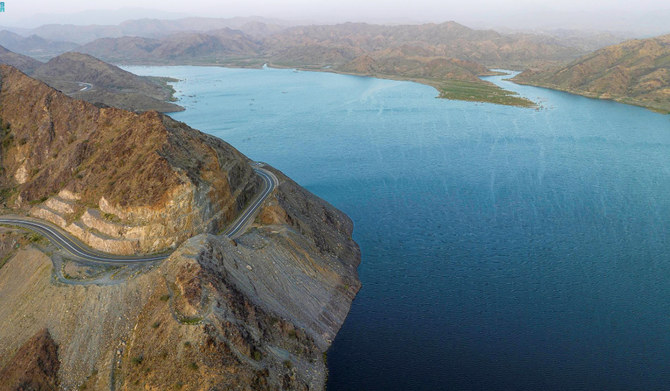
With a capacity of 79.2 million cubic meters of water, the Wadi Qanuna Dam in Makkah province is considered one of Saudi Arabia’s largest barrages. (SPA)
“Rain is scarce in Saudi Arabia, and when rain does come the water is frequently not fully captured,” said Bali. “One solution to regenerating water resources in depleted aquifers is to expand upon this initiative.”
New technologies could be leveraged in cities to ensure water is sufficiently cleaned to avoid aquifer contamination, while measures can be implemented to boost rainwater harvesting and to make it mandatory for stormwater tanks to focus on replenishing aquifers.
“Recycled water needs to be considered as valuable as potable water,” said Bali. “The associated increases in available recycled water can then be used in more industrial uses such as district cooling, manufacturing, and to irrigate crops that are not intended for human consumption.”
With the majority of water usage in Saudi Arabia allocated to agriculture and the country’s expanding green spaces, there is a pressing need to prioritize the use of native drought-tolerant plants.
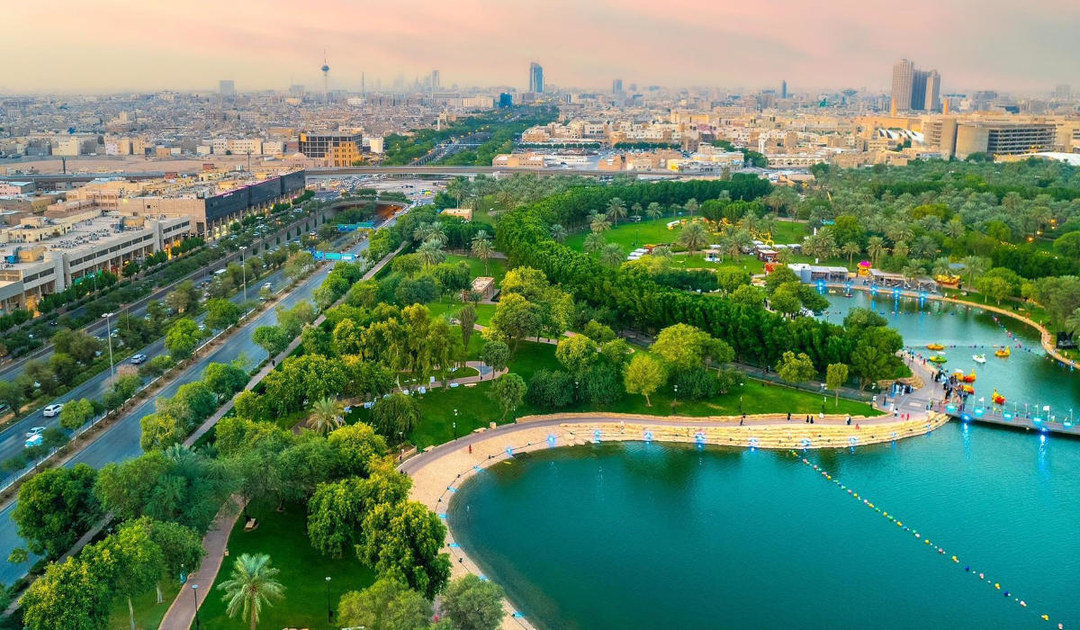
With Saudi Arabia's green spaces expanding, there is a pressing need to prioritize the use of native drought-tolerant plants. (Supplied)
Additionally, finding alternatives to cultivating water-intensive crops is crucial to maintaining the nation’s food security aspirations while conserving water resources.
“Using irrigation systems that utilize modern technologies, such as moisture monitoring, can help the Kingdom mitigate water loss in farming activities,” said Bali.
On an individual level, everyone can play a part in reducing water consumption and waste management.
“Water is a valuable and irreplaceable essential resource and yet we have forgotten the extensive efforts it takes to get that water to our taps, not to mention embedded water,” said Dauth.
“Everyone’s water footprint counts.”














